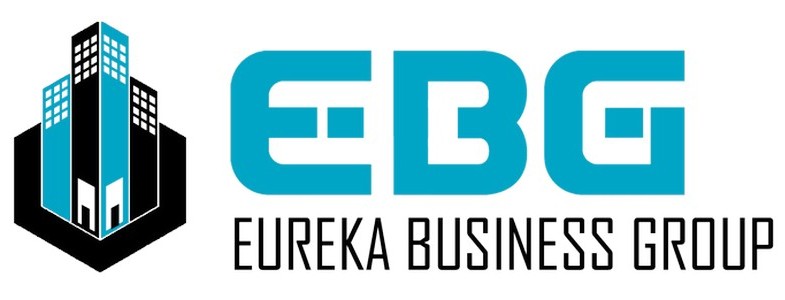- Home
- Commercial Broker Services
- Business Broker Services
- Business Owners Resources
- Demystifying Commercial Leases: Advice from Experienced Brokers
Demystifying Commercial Leases: Advice from Experienced Brokers
Navigating the world of commercial real estate can be daunting for both novice and experienced business owners alike. The complexity of commercial leases, filled with legal jargon and intricate clauses, can be particularly challenging. To help demystify this process, we’ve gathered insights from seasoned commercial real estate brokers who have navigated countless leases and can offer practical, actionable advice.
Understanding the Basics
What is a Commercial Lease?
A commercial lease is a legally binding agreement between a landlord and a business tenant for the rental of commercial property. These properties include offices, retail spaces, warehouses, and industrial spaces. Unlike residential leases, commercial leases are typically longer and more complex, with terms that can greatly impact the tenant’s business operations.
Key Components of a Commercial Lease
Lease Term: This defines the duration of the lease, including the start and end dates. Commercial leases can range from one year to several decades, with options for renewal.
Rent and Rent Escalations: The lease will specify the base rent amount and any future rent increases, known as escalations. These can be fixed amounts or tied to an index like the Consumer Price Index (CPI).
Use Clause: This clause dictates what type of business activities can be conducted on the premises. It’s crucial to ensure the use clause aligns with your business operations.
Maintenance and Repairs: The lease will outline responsibilities for maintenance and repairs. This could range from the landlord handling all maintenance to the tenant being responsible for everything.
Common Area Maintenance (CAM) Fees: If the property is part of a multi-tenant building, tenants often pay a share of the maintenance costs for common areas.
Insurance Requirements: Commercial leases typically require tenants to carry specific types and amounts of insurance, such as liability and property insurance.
Tips from Experienced Brokers
1. Start with a Clear Understanding of Your Needs
“Before diving into lease negotiations, it’s essential to have a clear understanding of your business needs,” advises Lisa Thompson, a commercial real estate broker with over 20 years of experience. “Consider the size, location, and layout of the space you need, as well as your budget and long-term business plans. This clarity will help you stay focused during negotiations and avoid agreeing to terms that don’t serve your business.”
2. Engage a Commercial Real Estate Broker
Navigating a commercial lease without professional assistance can be risky. Experienced brokers bring invaluable market knowledge and negotiation skills. “A good broker will understand market trends, fair rental rates, and the nuances of lease terms,” says John Anderson, another seasoned broker. “They can also identify red flags and negotiate better terms on your behalf.”
3. Pay Attention to Lease Term and Renewal Options
The length of the lease term can significantly impact your business. Shorter leases offer flexibility but may result in higher rent increases upon renewal. Longer leases provide stability but can be restrictive if your business needs change. “Negotiate renewal options that give you the right to extend the lease at pre-determined terms,” recommends Thompson. “This can provide peace of mind and protect you from sudden rent hikes.”
4. Scrutinize Rent and Escalation Clauses
Understanding the financial commitments of your lease is crucial. “Pay close attention to how rent escalations are calculated,” says Anderson. “Fixed increases are predictable, but CPI-linked escalations can lead to significant rent hikes in inflationary periods. Ensure you understand the worst-case scenario for rent increases.”
5. Clarify Maintenance and Repair Responsibilities
Maintenance and repair clauses can vary significantly between leases. “Negotiate clear terms regarding who is responsible for what,” advises Thompson. “Ambiguous language can lead to disputes and unexpected costs. Ideally, aim for a balance that suits both parties—landlords should handle structural repairs while tenants cover day-to-day maintenance.”
6. Review CAM Fees Thoroughly
CAM fees can add substantial costs to your rent. “Request a detailed breakdown of what CAM fees cover and how they are calculated,” suggests Anderson. “Ensure there are caps on increases to avoid unexpected spikes in these costs. It’s also worth negotiating exclusions for items that should be the landlord’s responsibility.”
7. Understand the Use Clause
The use clause can significantly impact your business operations. “Make sure the permitted use aligns with your business model and allows for potential future expansions or changes,” advises Thompson. “Restrictions on use can limit your ability to pivot your business as needed.”
8. Negotiate Exit Strategies
Businesses evolve, and your lease should offer flexibility if your circumstances change. “Negotiate terms that allow for subleasing or assignment,” says Anderson. “These provisions can offer an exit strategy if you need to move to a different location or downsize.”
9. Get Legal Advice
While brokers provide market and negotiation expertise, legal advice is crucial for understanding the full implications of lease terms. “Engage a commercial real estate attorney to review the lease before signing,” recommends Thompson. “They can identify potential legal pitfalls and ensure the lease complies with local laws and regulations.”
10. Plan for the Future
Consider how your space needs might change over the lease term. “Include provisions for expansion or reduction of space within the lease,” suggests Anderson. “Having the flexibility to grow or shrink your space can save significant costs and disruptions in the future.”
Conclusion
Commercial leases are complex documents that can significantly impact your business’s success. By understanding the basics and leveraging the expertise of experienced brokers and legal professionals, you can negotiate a lease that supports your business goals and minimizes risks. Remember to focus on clarity, flexibility, and future planning to ensure your lease serves as a solid foundation for your business operations.
Navigating the commercial lease landscape doesn’t have to be overwhelming. With the right preparation and expert advice, you can demystify the process and secure a lease that sets your business up for success.



